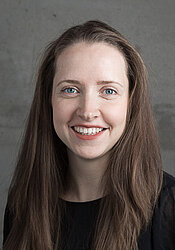Bachelor's study programme "Optometry" (LV)
Programme level: Bachelor's Degree Programme
Language of instruction: Latvian
Study form and duration: full-time - 6 semesters
Credits: 180 ECTS
Obtainable degree or qualification: Bachelor`s Degree of Health Sciences in Optometry
Number of study places for admission in 2025/2026: State-funded study places - 45, study places for tuition fee - 15
Tuition fee per year (ac. year 2025/26): 4000 EUR for EU/EEA/Swiss citizens, EU Long-term resident permit holders and their family members. 5000 EUR for citizens of other countries
Study location: Riga, Tornakalns
The aim of the Bachelor study programme Optometry is to prepare highly qualified and competitive assistants of vision care specialists for practical work in companies and the public sector – assistants in optical stores, assistants of optometrists and ophthalmologists, who would be able to provide high-quality vision care services in cooperation with health and vision care professionals, as well as manage health care companies and independently develop new vision-care-related approaches in the changing health care system, as well as to provide a set of knowledge, skills, and competences according to the knowledge, skills and competence.
Study Programme Director

Assistant Professor Ilze Ceple
The academic content of the study programme mainly consists of natural science subjects and specially selected medical subjects pertaining to the human system of vision. The programme provides students with a scientific basis for their further professional activity in primary vision care, developing scientific analysis skills and the ability to independently solve problems related to patients' vision defects, as well as skills required for continuing scientific work.
Part A (mandatory part) of the study programme requires acquisition of study courses, which form:
foundations in natural sciences – physics, chemistry, biology, mathematics
foundations in medicine – human anatomy and physiology, microbiology, biochemistry, general pathology
specialization courses – physical, geometric and visual optics, eye anatomy and physiology, visual physiology, visual functional disorders, basics of visual diagnostics, optometric instruments, binocular vision.
Part B (limited elective part) of the study programme provides study courses that include social, medical and optometry subjects. The first specialization subject of the bachelor’s study programme “Optometry” is Introduction to Optometry, which starts in the first semester, while the others – with the 2nd semester.
After graduation, the graduates work as optometrists' assistants in optician’s shops and clinics, helping to make the necessary assessments and measurements of visual functions or training patients in the use and care of contact lenses. The skills acquired during the study practice also enable a graduate to become an optician or a consultant of visual ergonomics. If a graduate wants to become an optometrist, the studies must be continued in the professional master's study programme “Optometry”, which grants the status of a medical practitioner – optometrist.
You can find out about the admission requirements for the study program by switching to the Latvian version of the website.

 CONFERENCE
CONFERENCE